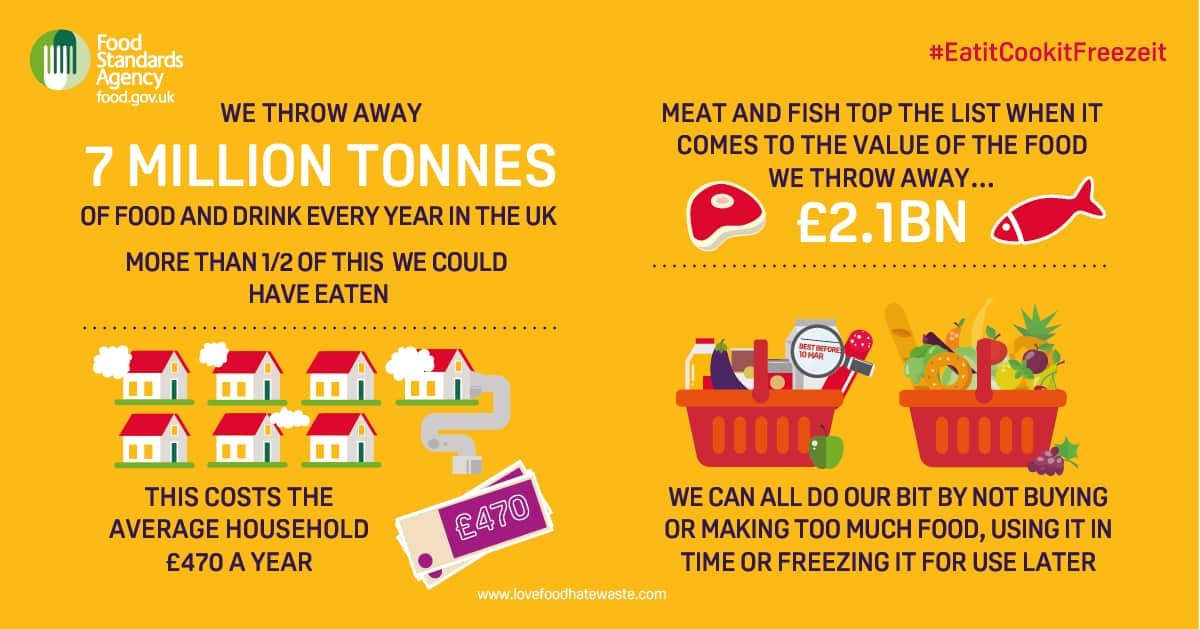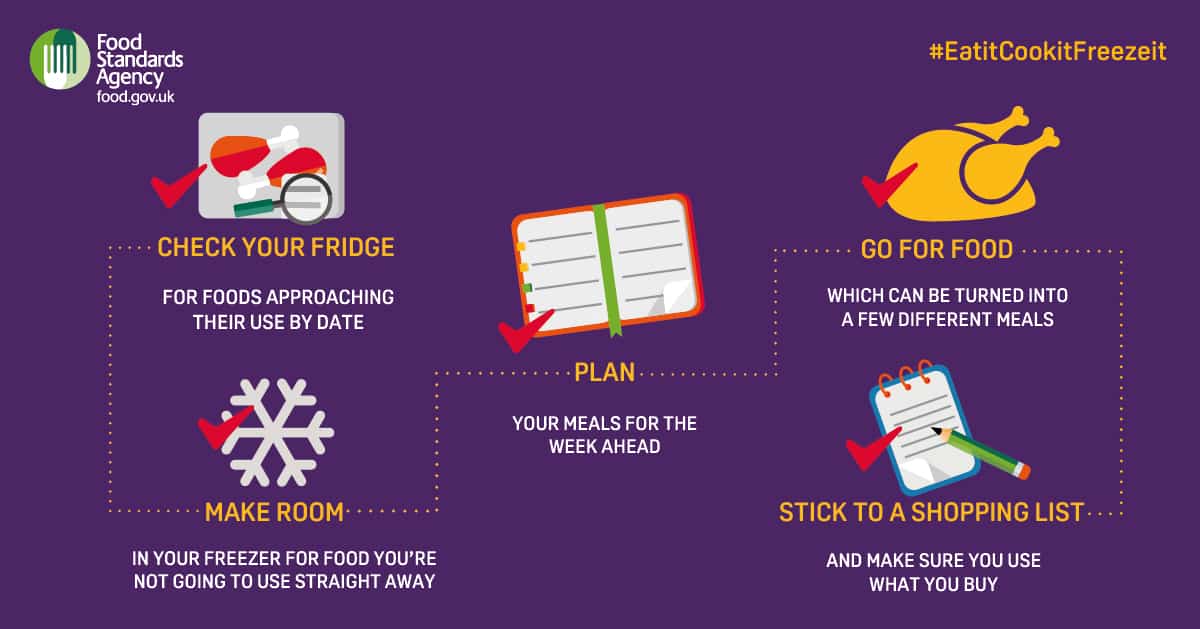Warwick House, Unit 7, Long Bennington Business Park, Main Road, Long Bennington, Newark, Notts, NG23 5JR
+ 44 (0) 1400 283090 generaladmin@bfff.co.uk

SHARE THIS POST
Food waste is something that affects us all. Whether it’s cooking too much food (the dreaded rice) or forgetting about a product that has gone out of date, most of us are guilty when it comes to throwing away food.
It is estimated that food waste costs the average household a staggering £470 a year – a figure which could pay for a relaxing weekend away.

At Fresh from the Freezer we love the freezer and have longed shouted its benefits. It is also the ideal place to store all you food for the week ahead.
Planning your meals for the week can not only help you to reduce time in the kitchen but can also help you to save money and reduce food waste. Check out this handy infographic from the Food Standards Agency.

There are so many questions when it comes to freezing your food, so here are a few handy facts and tips to help you along the way:
If you are still unsure about refreezing your food, you could always use the vast array of frozen food products that are pre-prepared and pre-portioned, allowing you to reduce your food waste as any unused food can be placed back in the freezer.
If you would like any more information or are unclear about anything we have touched on, please visit our FAQs or Frozen food storage advice pages.
You can find more useful information about freezing your food by following the hashtag #EatItCookItFreezeIt.
SHARE THIS POST

Warwick House, Unit 7, Long Bennington Business Park, Main Road, Long Bennington, Newark, Notts, NG23 5JR
+ 44 (0) 1400 283090 hello@frozenfoodrevolution.co.uk
T&Cs Privacy Policy @bfff frozen food revolution 2025
Website Designed & Built by we are CODA